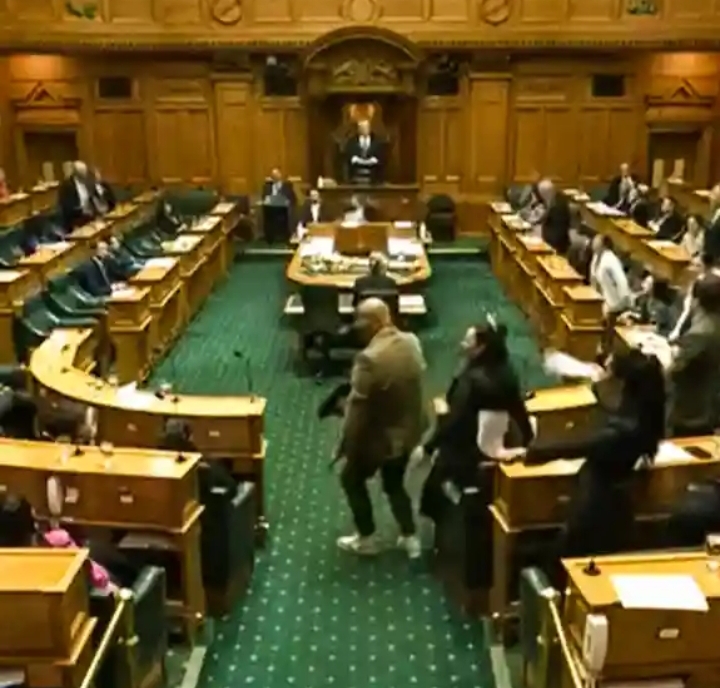New Zealand suspended three Maori MPs for performing a haka in protest of a controversial bill, sparking debate over Indigenous rights and parliamentary rules.
New Zealand Suspends Maori MPs Over Haka Protest in Parliament


On Thursday, New Zealand’s parliament approved extended suspensions for three lawmakers who interrupted the reading of a contentious bill last year by performing a haka, the traditional dance of the Maori people.
The lawmakers involved — Te Pati Maori co-leaders Debbie Ngarewa-Packer and Rawiri Waititi — have been suspended for 21 days each, while a third MP from the same party, Hana-Rawhiti Maipi-Clarke, received a seven-day suspension.
This marks a significant departure from precedent, as the previous longest suspension of a New Zealand parliamentarian had only been three days.
During the suspension period, the affected lawmakers will neither receive their salaries nor be allowed to vote on any legislation.
The protest took place in November, during the reading of a bill that was highly unpopular and has since been rejected. The bill aimed to revise the Treaty of Waitangi, an agreement signed in 1840 between the British crown and Maori chiefs. This historic treaty continues to influence the country's legislative and political frameworks.
In May, the parliamentary privileges committee concluded that the actions of the three MPs were conducted in "a manner that could have the effect of intimidating a member of the house" and recommended their suspension.
During the incident, Hana-Rawhiti Maipi-Clarke — the youngest MP in New Zealand at just 22 years old — dramatically tore up a copy of the bill and joined her party colleagues in performing the haka.
Concerns were raised by some members of parliament that, while performing the haka — traditionally used to greet guests or energize warriors before battle — the trio moved across the parliamentary floor toward government MPs in a way that some perceived as confrontational.
Judith Collins, who chairs the privileges committee and also serves as attorney-general, addressed Parliament before the vote, stating that the Speaker had been compelled to pause proceedings for 30 minutes due to the disruption.
"It's not about the haka ... it is about following the rules of parliament that we are all obliged to follow and that we all pledged to follow," Collins said.
Maipi-Clarke, speaking before the suspension vote, argued that the disciplinary action was a deliberate attempt to silence Maori voices within the legislative process.
“Are our voices too loud for this house? Is that the reason why we are being silenced? Are our voices shaking the core foundation of this house? The house we had no voice in building ... We will never be silenced and we will never be lost,” she said.
Despite the signing of the treaty in 1840, many violent conflicts followed between the colonial government and Maori tribes, leading to the seizure of large tracts of Maori land. Tensions between New Zealand’s Indigenous population and the descendants of European colonizers remain unresolved to this day.

 বাংলা
বাংলা  Spanish
Spanish  Arabic
Arabic  French
French  Chinese
Chinese 
